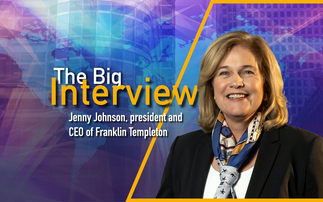The role of political institutions in economic policy changes and investment outcomes
In our previous white paper, "Emerging markets debt: Determinants of sovereign bond quality and returns," we observed that a country's sovereign bond credit spread and credit rating are explained by the quality of the country's economic policies.¹ Specifically, countries with a higher level of economic freedom enjoy lower borrowing costs and higher credit ratings.² For investors, the implication is clear: Countries that increase their economic freedom during the investment horizon can deliver excess returns from the resultant narrowing of the credit spread.
This empirically documented relationship between economic policy and asset prices invites an important question for investors: What conditions facilitate changes in economic policy? In this white paper, we find that a country's political institutions explain how likely the country is to increase its level of economic freedom or to reverse an already high level of economic freedom.
We find that democracy helps countries improve economic freedom from a low level. Conversely, high economic freedom countries with democracies are more likely to experience declines in economic freedom. In sum, investors who can identify the prerequisites to policy change and in which direction they influence policy change will be able to more accurately identify investments that can deliver excess returns.
The scope of the research undertaken in this white paper is broad. We look at the role of democracy in high economic freedom countries as well as low economic freedom countries, and whether democracy's role has changed over time.
The question - What drives changes in economic freedom? - is an intriguing one...
Risks
This material is issued by EVMI and is for Professional Clients/Accredited Investors only.
Sources of data: Eaton Vance, Fraser Institute's Economic Freedom of the World (EFW) Index dataset, Marshall, Gurr and Jaggers' (2018) Polity IV project, World Bank's Data Bank of indicators (World Bank, 2019), Historical Index of Ethnic Fractionalization (HIEF) Dataset, Freedom House "Freedom in the world" (2019) report and the Standardized World Income Inequality Database. Data is at 31 December 2017, unless otherwise specified. This material is presented for informational and illustrative purposes only. This material should not be construed as investment advice, a recommendation to purchase or sell specific securities, or to adopt any particular investment strategy; it has been prepared on the basis of publicly available information, internally developed data and other third party sources believed to be reliable. However, no assurances are provided regarding the reliability of such information and Eaton Vance has not sought to independently verify information taken from public and third-party sources. Investment views, opinions, and/or analysis expressed constitute judgments as of the date of this material and are subject to change at any time without notice. Different views may be expressed based on different investment styles, objectives, opinions or philosophies. This material may contain statements that are not historical facts, referred to as forward-looking statements. Future results may differ significantly from those stated in forward-looking statements, depending on factors such as changes in securities or financial markets or general economic conditions. This material is for the benefit of persons whom Eaton Vance reasonably believes it is permitted to communicate to and should not be forwarded to any other person without the consent of Eaton Vance. It is not addressed to any other person and may not be used by them for any purpose whatsoever. It expresses no views as to the suitability of the investments described herein to the individual circumstances of any recipient or otherwise. It is the responsibility of every person reading this document to satisfy himself as to the full observance of the laws of any relevant country, including obtaining any governmental or other consent which may be required or observing any other formality which needs to be observed in that country. Unless otherwise stated, returns and market values contained herein are presented in US Dollars.
In the United Kingdom, this material is issued by Eaton Vance Management (International) Limited ("EVMI"), 125 Old Broad Street, London, EC2N 1AR, UK, and is authorised and regulated by the Financial Conduct Authority. EVMI markets the services of the following strategic affiliates: Parametric Portfolio Associates® LLC ("PPA"), an investment advisor registered with the SEC. Hexavest Inc. ("Hexavest") is an investment advisor based in Montreal, Canada and registered with the SEC in the United States, and has a strategic partnership with Eaton Vance, and Calvert Research and Management ("CRM") is an investment advisor registered with the SEC.













